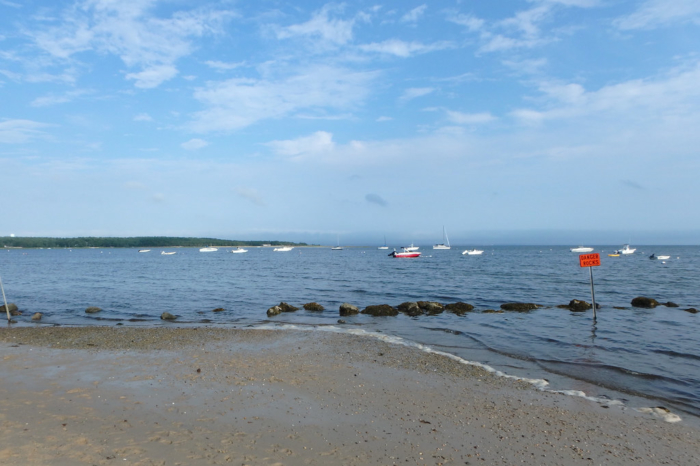Economic Impact of Beach Policies Felt by Towns and Businesses
As town officials and public health experts determine if, when and how local beaches will reopen, business owners, town managers, and beachgoers alike question what lies ahead. The economies of Cape Cod and the Islands are highly dependent on tourism, with beach-going a driving factor in travel to the area. The North and South shores also include beaches that provide municipalities revenue.
As certain municipalities consider closure of their towns’ beaches to non-residents, as is the case with Good Harbor Beach in Gloucester, the beaches of surrounding towns are stretched to capacity, to the dismay of residents. This phenomenon was noted last week, when town officials in Salisbury and Beverly were “inundated” with “beachgoers [that] were not from the area.” Since then, Beverly has been forced to close beach parking areas for non-residents.
Similarly, towns on Cape Cod are weighing their options. In Chatham, for example, the Board of Selectmen wrote that they were contemplating “continuing operations as usual, eliminating the sale of day passes, restricting beaches to taxpayers only, and restricting parking to 50% capacity in lots.” With any combination of these policies enacted, the economic ramifications, for both the town’s revenue stream and private enterprise, would be unprecedented.
For many seaside communities, revenue from resident and non-resident beach passes, as well as daily gate fees, helps balance operating budgets. For example, reductions in parking capacity by 50 percent, a commonly proposed measure, would significantly hinder the town of Barnstable’s beach revenue, which amounted to $2.6 million in 2019. Further contributing to budget shortfalls were delays in beach openings, as many municipalities have opted not to charge for parking until late June.
Eliminating the sale of daily passes would also damage budgets. In 2019, Orleans grossed $809,660 from the sale of daily tickets, which amounted to nearly 60% of total beach revenue. While this amount may initially appear nominal relative to a town’s total revenue, reducing or losing the revenue altogether can result in large-scale changes to the town’s operations, such as laying off workers, limiting borrowing for infrastructure projects, and deferring planned repairs to public buildings.
Below is a map with each municipality’s beach-specific policy on the North Shore and Cape Cod as of June 8. The blue markers indicate beaches that are open to the public, the red markers indicate beaches that are only open to residents, and the yellow markers indicate beaches that are either undecided, or allow visitors for periods longer than one day.
The financial hardship, however, is not exclusively faced by local government, but also local businesses reliant on tourism. The Cape Cod Chamber of Commerce writes that the travel industry in Barnstable County, which is in large part driven by beach tourism, accounted for “$1.32 billion [in total spending] supporting 10,844 travel-related jobs and $357.7 million in wages while generating $133 million in state and local taxes.”
A number of the sectors that have already been hit hardest by the effects of the COVID-19 pandemic will feel an even greater impact on the Cape as a result of reduced tourism. According to MassEconomix.org, the culture/recreation sector, for example, while only accounting for 2.9% of jobs in the entire state, is responsible for nearly 5% of employment on Cape Cod. Perhaps even more astonishingly, the tourist-reliant food/accommodation industry accounts for over 21% of jobs beyond the Sagamore Bridge, over double the state average.
Local officials, while considering the potential pandemic-related consequences of reopening beaches, must also take into account the makeup of their workforce and the reliance of their local economies on tourism. Moreover, neighboring municipalities on the North Shore and Cape Cod must coordinate their reopening efforts, such that smaller beaches are not overwhelmed and attempts at social distancing are not rendered ineffective.
Thomas O’Rourke is a Roger Perry Government Transparency Intern at the Pioneer Institute. Mr. O’Rourke holds a wide array of policy interests ranging from advancing economic opportunity to government accountability. He is currently a junior at Emory University studying PPL (Philosophy, Politics, and Law) as well as Economics.
Header image credit: “Swift’s Beach” by Elizabeth Thomsen is licensed under CC BY-NC-SA 2.0



